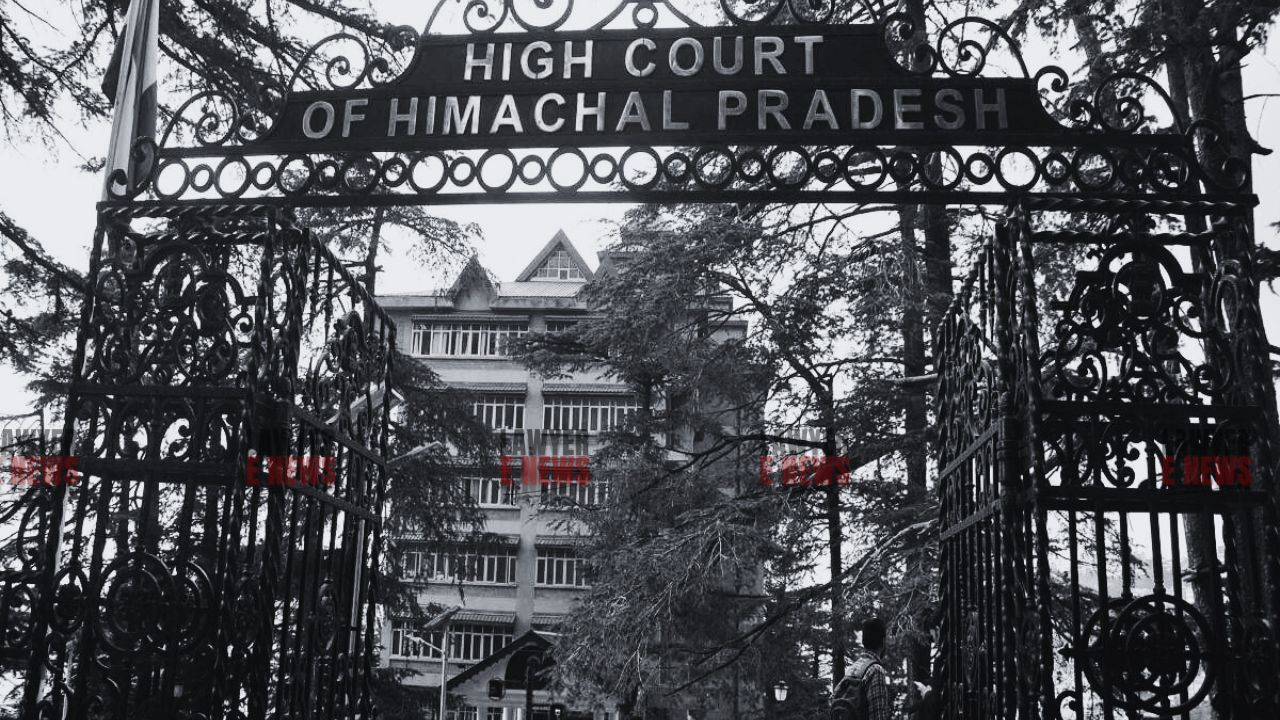-
by Admin
17 December 2025 4:09 PM



The Himachal Pradesh High Court overturned the conviction of the appellant under Section 376 IPC and Section 6 of the POCSO Act. The court, comprising Justices Vivek Singh Thakur and Rakesh Kainthla, found that the prosecution failed to conclusively establish the minority of the victim as required under Rule 12 of the Juvenile Justice Rules, 2007, and Section 94 of the Juvenile Justice Act, 2015. Additionally, reliance on the victim’s statement recorded under Section 164 CrPC, despite her turning hostile during the trial, was deemed legally unsound.
The appellant had been convicted by the Special Judge, Fast Track Court, Mandi, and sentenced to seven years under Section 376 IPC and ten years under Section 6 of the POCSO Act, both to run concurrently. Challenging this decision, the appellant argued that the trial court failed to appreciate the evidence and procedural requirements properly.
The High Court began its analysis by addressing the pivotal issue of the victim's age, noting that the determination of age is crucial in cases under the POCSO Act. Referring to Jarnail Singh v. State of Haryana and subsequent precedents, the court stated, “Rule 12 of the Juvenile Justice Rules lays down a hierarchy for age determination: first, a matriculation or equivalent certificate; second, the date of birth certificate from the school first attended; and finally, the birth certificate issued by a local authority. The prosecution’s failure to collect the school certificate or provide an explanation for its absence renders reliance on the panchayat-issued birth certificate legally infirm.”
The court emphasized that the victim had attended school and studied up to the ninth standard. “When the victim’s school attendance is established, the prosecution must procure the certificate from the school first attended. Resorting to a panchayat-issued birth certificate without exhausting this requirement undermines the case’s credibility.”
Additionally, both the victim and her mother testified during the trial that she was over 18 years old at the time of the alleged incident. The court observed, “The prosecution did not provide the best evidence available, and the testimony of the victim and her mother aligns with the defense’s claim of majority.”
Addressing the evidentiary value of the victim’s statement under Section 164 CrPC, the court stated, “A statement recorded under Section 164 CrPC is not substantive evidence and can only be used for corroboration or contradiction. The trial court erred in treating this statement as a basis for conviction, especially after the victim turned hostile during the trial.” Citing the Madras High Court’s decision in R. Palanisamy v. State, the bench reinforced that such statements lose their evidentiary value if the maker disowns them during the trial.
The court further highlighted that the victim herself had testified during cross-examination that her relations with the appellant were consensual and denied any coercion or threat. “Consent is immaterial only if the victim is a minor. Without conclusive proof of her minority, consensual relations cannot constitute rape or an offence under the POCSO Act.”
The court expressed concern over the investigative lapses that compromised the case. “The investigating officer failed to collect essential documents, including the school certificate, which is prioritized under the Juvenile Justice Act. This procedural oversight undermines the prosecution’s case and raises questions about the fairness of the investigation.”
The court issued directives to the Director General of Police and the Director of Prosecution to ensure compliance with legal procedures in age determination. “Investigating officers must adhere to Section 94 of the Juvenile Justice Act, ensuring the collection of evidence in the prescribed order. Public prosecutors must verify compliance before trial.”
The court allowed the appeal, stating, “The judgment passed by the learned trial court is not sustainable. The present appeal is allowed, and the judgment and order passed by the learned trial court are ordered to be set aside.” It directed that any fine paid by the appellant be refunded and required him to execute a bond under Section 437-A CrPC to ensure his appearance if a further appeal is filed.
Before parting, the court reiterated the importance of diligent investigation in cases involving age determination and directed the Director General of Police and Director of Prosecution to ensure compliance with these instructions, with a report to be submitted by the end of December 2024.
The case underscores the criticality of following procedural safeguards in age determination and evidentiary evaluation, ensuring that justice is not undermined by investigative and prosecutorial lapses.
Date of Decision: 06/12/2024
